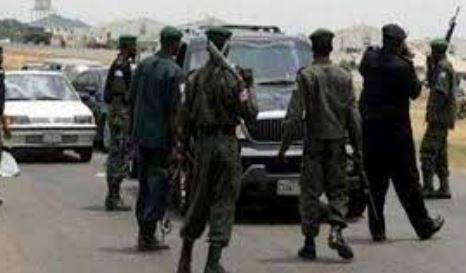Extortion at security checkpoints on roads in the South-East region of Nigeria is continuing to escalate, with many road users fearing that the situation will worsen as the Christmas and New Year holidays approach. Residents, particularly those traveling from other parts of Nigeria and the diaspora, are regularly confronted with harassment and extortion by police, military personnel, and other security agencies stationed along the major routes leading to the South-East.
A recent report reveals that on the Onitsha to Enugu Expressway, a stretch of approximately 105 kilometers, road users are faced with over 25 security checkpoints manned by police, soldiers, and other agencies, such as the Road Safety Corps and NDLEA. These security personnel have been accused of treating motorists as if they were criminals, demanding bribes at each stop. Drivers are often forced to pay bribes ranging from N100 to N5000, depending on the type of vehicle. In some instances, vehicles are delayed for hours or passengers are humiliated before being allowed to continue their journey.
One particularly shocking incident occurred recently at a checkpoint in Anambra, where a police officer, Inspector Sani Suleiman, allegedly shot and killed a young man over his refusal to pay a N100 bribe. The incident led to widespread panic, with local youths mobilizing against the police officers before they eventually fled the scene. The officer has since been disarmed and detained for further investigation.
The situation has led many Igbo people residing outside the region to reconsider returning home for the holidays. Ethelbert Okeke, a resident of Lagos, said he has decided not to travel due to the numerous checkpoints between Lagos and the South-East, particularly the ones between Onitsha and his hometown in Mgbidi. “I’ll just send money to my people for Christmas instead,” he said, “and maybe we’ll visit when the situation improves.”
The extortion has become so widespread that some commercial drivers, such as Okwudili Otuka, who plies the Enugu-Onitsha route, have an “understanding” with the police officers at various checkpoints, paying N200 per stop. However, Otuka highlighted that the main issue is not the extortion itself but the lengthy delays, especially when private car owners refuse to settle the officers.
Intersociety, a leading rights organization, has condemned the widespread abuse of power at these checkpoints, accusing the military and police of allowing the extortion to flourish due to alleged “return culture,” where lower-ranked officers make payments to their superiors. Comrade Emeka Umeagbalasi, chairman of Intersociety, criticized the military and police leadership for turning a blind eye to these illegal practices. “This is not the action of a few bad eggs. It is an institutionalized problem with the tacit support of their leadership,” he stated.
In response to the growing outcry, rights activists are urging the military and police to take stronger action against officers involved in extortion. Obinna Nwagbara, a human rights advocate, called on the Chief of Army Staff and the Inspector-General of Police to take decisive measures to halt the abuse. “They must do more than just give orders. The extortion continues with reckless abandon,” he said.
In Ebonyi State, the situation is equally dire. Commercial vehicle drivers and traders face constant harassment at boundary checkpoints, where they are required to pay bribes ranging from N100 to N3000 depending on the size of their vehicle or goods. A truck driver, Oliver Onyeukwu, lamented that he spends more on bribes in the Ebonyi-Enugu region than on the Ebonyi-Cross River route. “We are helpless because the government is not doing anything to stop this situation,” he said.
Local residents, especially traders, have also reported the negative impact the extortion is having on the cost of goods in the region. Mrs. Ngozi Udeobi, a plantain and banana trader, stated that the extra costs incurred from paying bribes are passed on to consumers, contributing to the high prices of foodstuffs in the South-East.
Igbo youth organizations, including the Coalition of South-East Youth Leaders (COSEYL), have condemned the treatment of road users by security agencies, accusing them of treating commuters like “prisoners of war.” They have called for the immediate dismantling of military and police checkpoints, arguing that their presence only exacerbates insecurity and economic hardship.
As the holiday season approaches, the situation at South-East road checkpoints remains a growing concern. With security forces continuing to extort money from motorists and passengers, many are left wondering when concrete actions will be taken to address this pervasive issue and restore order on the region’s highways.

